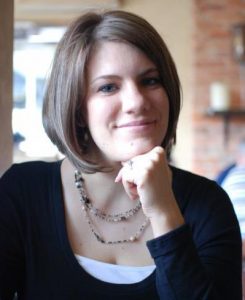 In a recent blog post, Rachel Held Evans included a bit of self-disclosure that warrants consideration by all who seek to lead the church into the future. After mentioning the recent article by Ross Douthat and response by Diana Butler Bass (something I have written about recently as well), she shares the disheartening reality that many with differing theological perspectives choose to attack the other’s position rather than collaborate to craft a brighter future for the church. Notably, she finds herself in an interesting place as one who simply doesn’t fit in either camp. Evans feels caught between the two Protestant worlds of conservative evangelicals and progressive mainliners; she realizes she doesn’t fit in either category and offers several reasons why.
In a recent blog post, Rachel Held Evans included a bit of self-disclosure that warrants consideration by all who seek to lead the church into the future. After mentioning the recent article by Ross Douthat and response by Diana Butler Bass (something I have written about recently as well), she shares the disheartening reality that many with differing theological perspectives choose to attack the other’s position rather than collaborate to craft a brighter future for the church. Notably, she finds herself in an interesting place as one who simply doesn’t fit in either camp. Evans feels caught between the two Protestant worlds of conservative evangelicals and progressive mainliners; she realizes she doesn’t fit in either category and offers several reasons why.
So What?
Evans is a Christian who writes extensively about the faith. She labels herself as “in between” these two worlds, which is an option not found on any survey. While I have no idea how she might answer such a question, it is logical to assume she may choose “none” or no religious affiliation. According to Cathy Lynn Grossman’s latest article the latest research by the Pew Center for People and the Press shows that 19% of all American adults now choose the religious identity of “none” or no affiliation. While a higher percentage of younger adults choose this option, numerous articles have noted that “none” is the only growing “religion” in recent years among all age groups. Within this broad category are a number of groups, including those who are “in between” as well as those who are spiritual but not religious.
My list differs from Evans in significant ways, yet places me in the same category: in between.
My in-between-ness begins with my experiences:
- I have three theological degrees from three schools affiliated with three different Protestant traditions that are often labeled as conservative.
- I have served congregations affiliated with four different mainline denominations that are often labeled as progressive.
- I have spent considerable time and energy building relationships and connecting with people all across the theological spectrum.
- I have both studied and seen in practice the limitation of denominations, especially in their current formulations.
- I have been enriched by both conservative and progressive traditions that emphasize Christian unity, and now consider such an essential value.
- I am increasingly more postmodern than modern.
- Are you an in between Christian? If so, how do you explain your perspective to others (especially others who find themselves comfortable within commonly used labels defining segments of Christians)?
- How effectively does your congregation welcome those who are “in between” into the life of your parish? What are some of the practices your congregation finds most helpful for providing this type of congregational culture? What growing edges do you recognize in this area, and how are those being addressed?